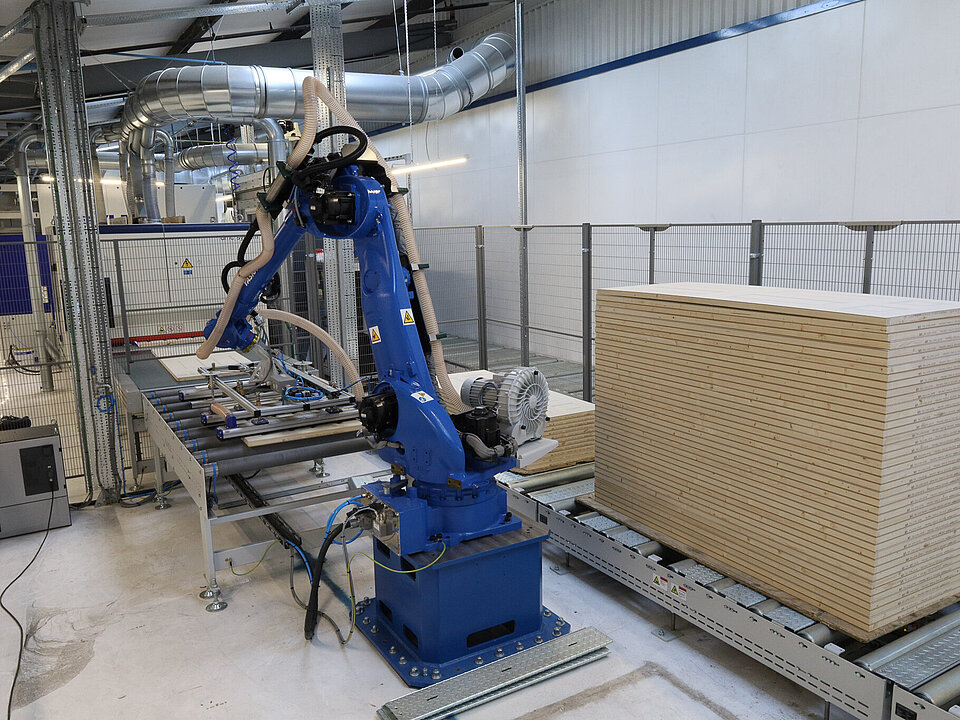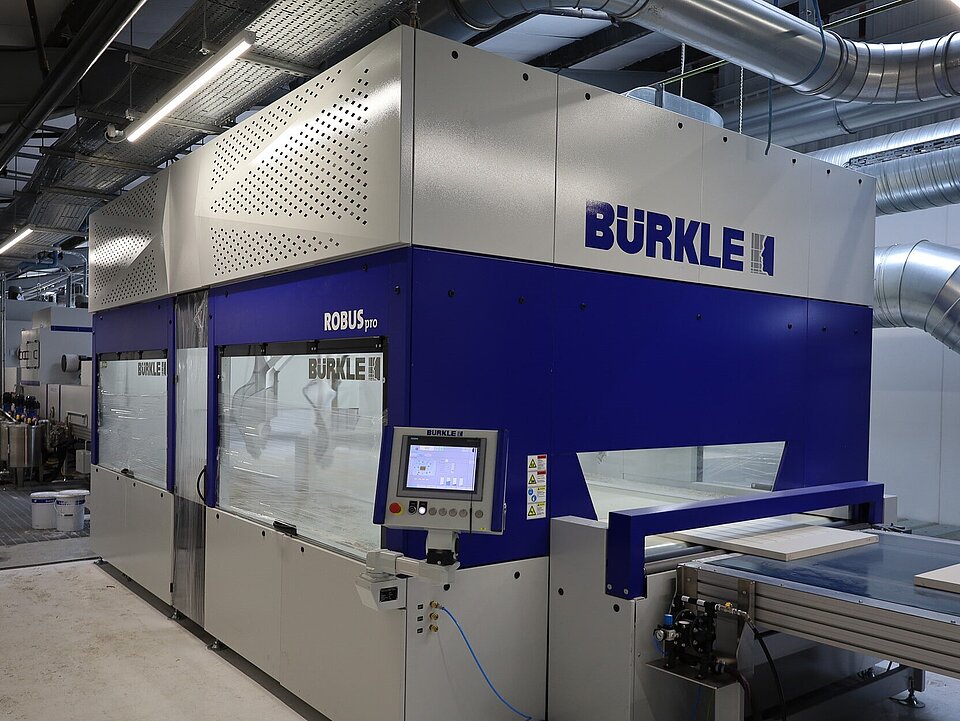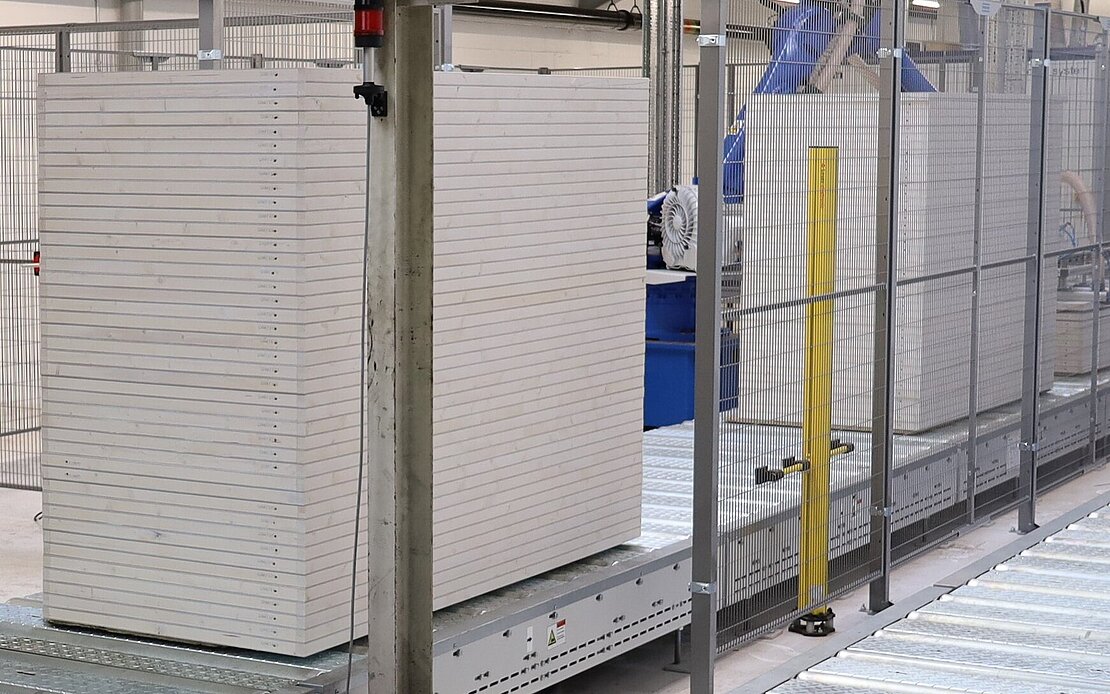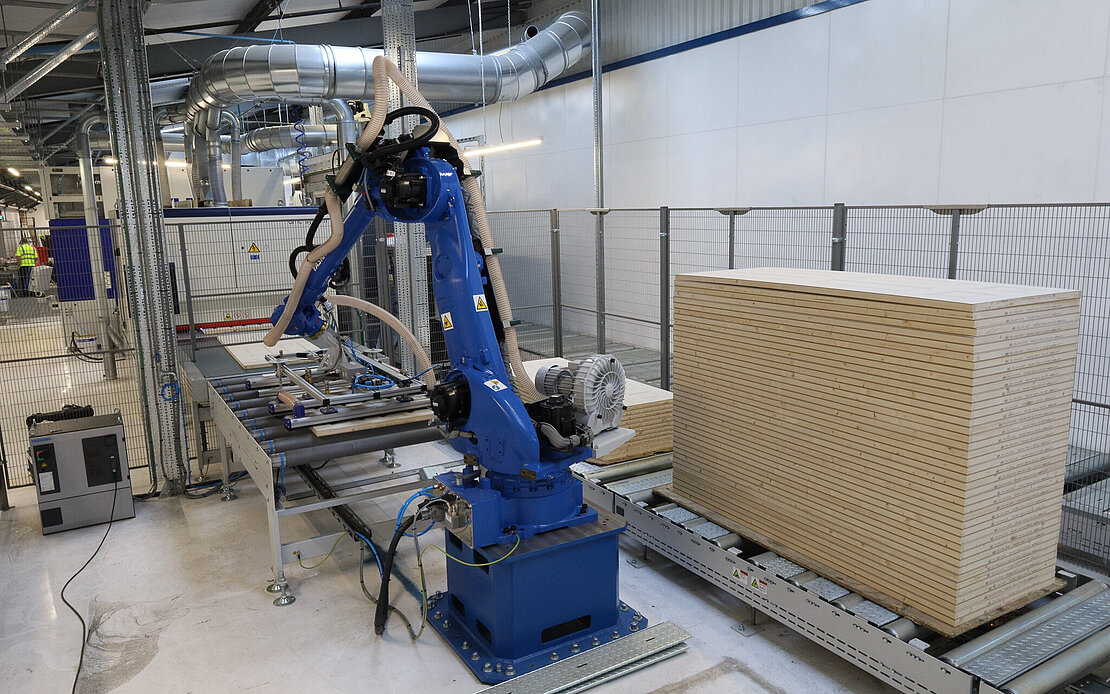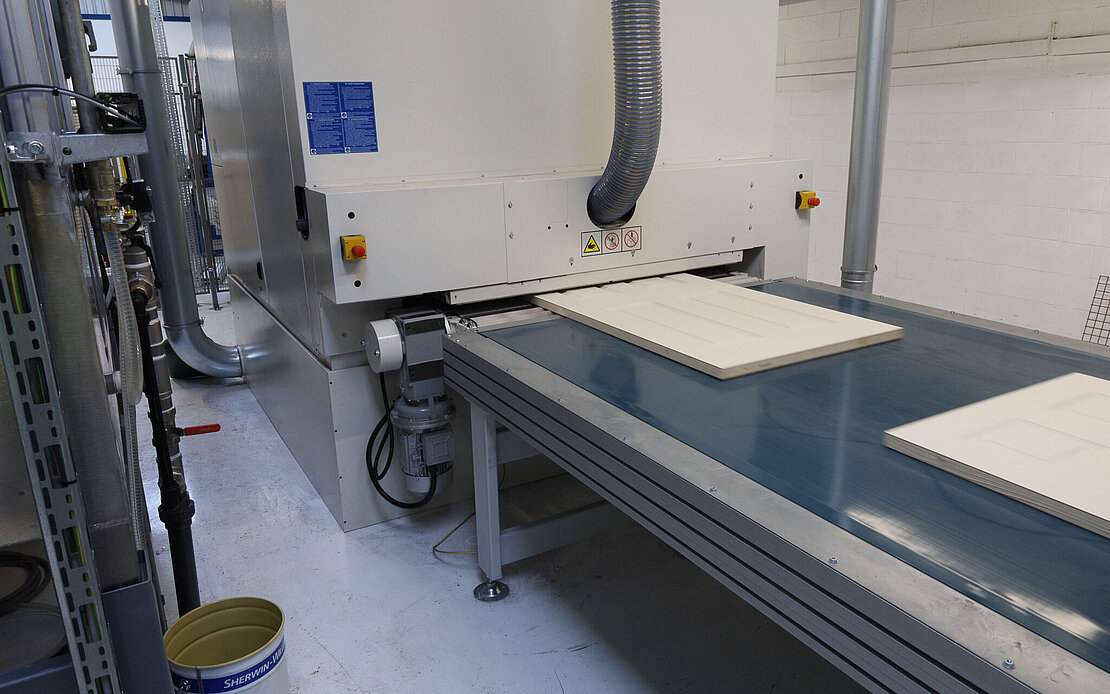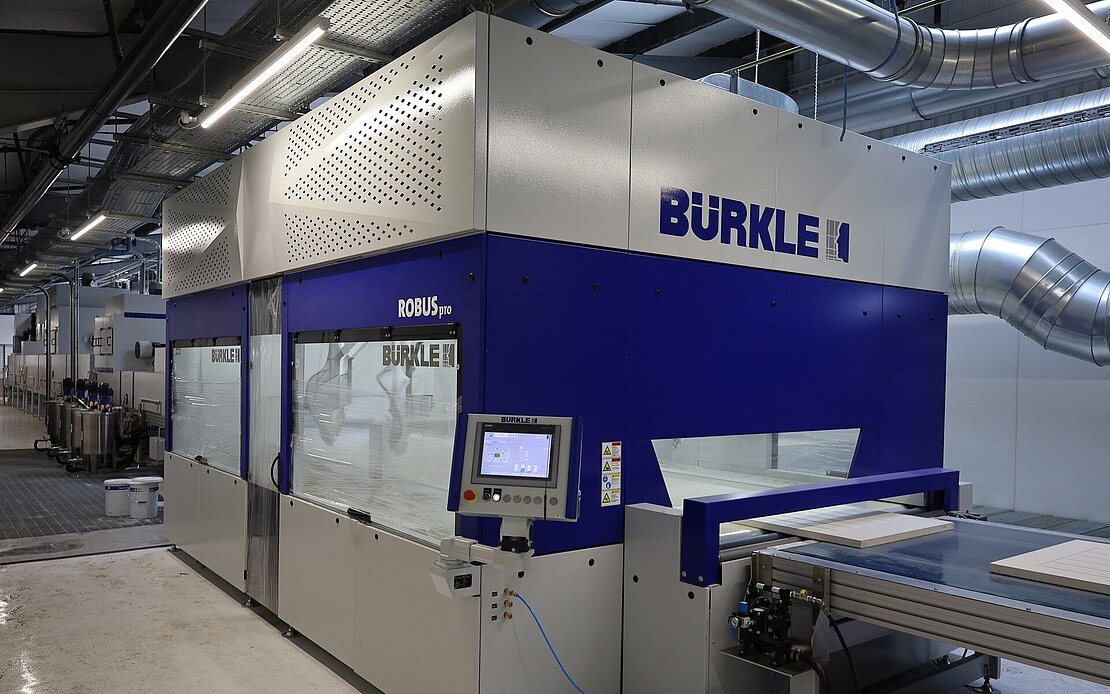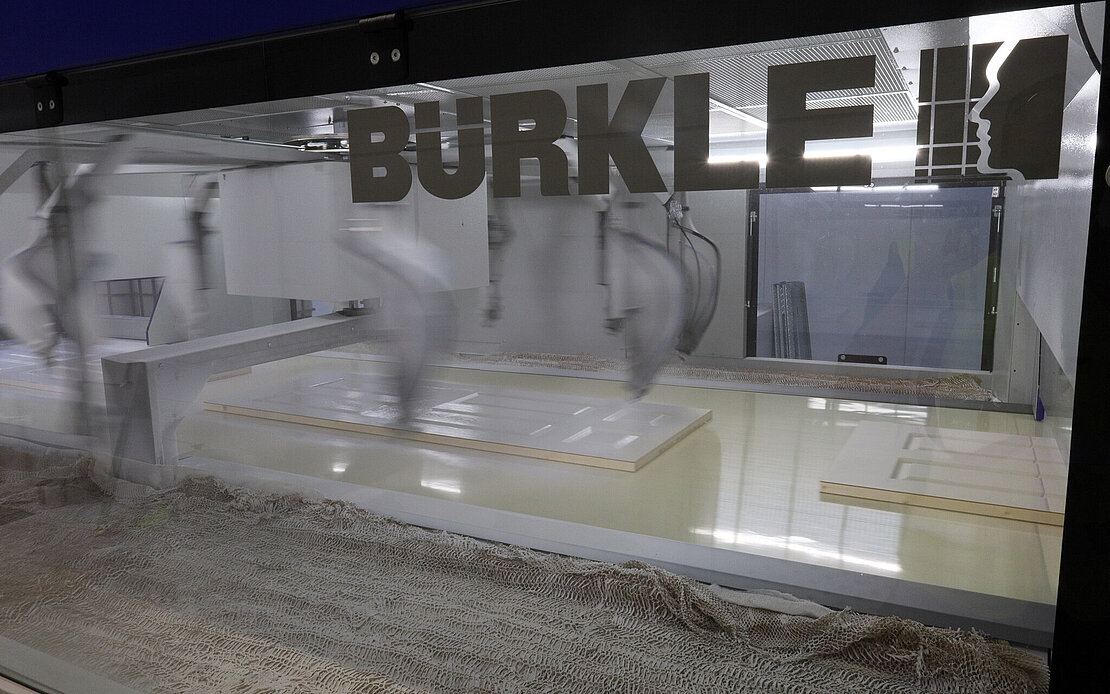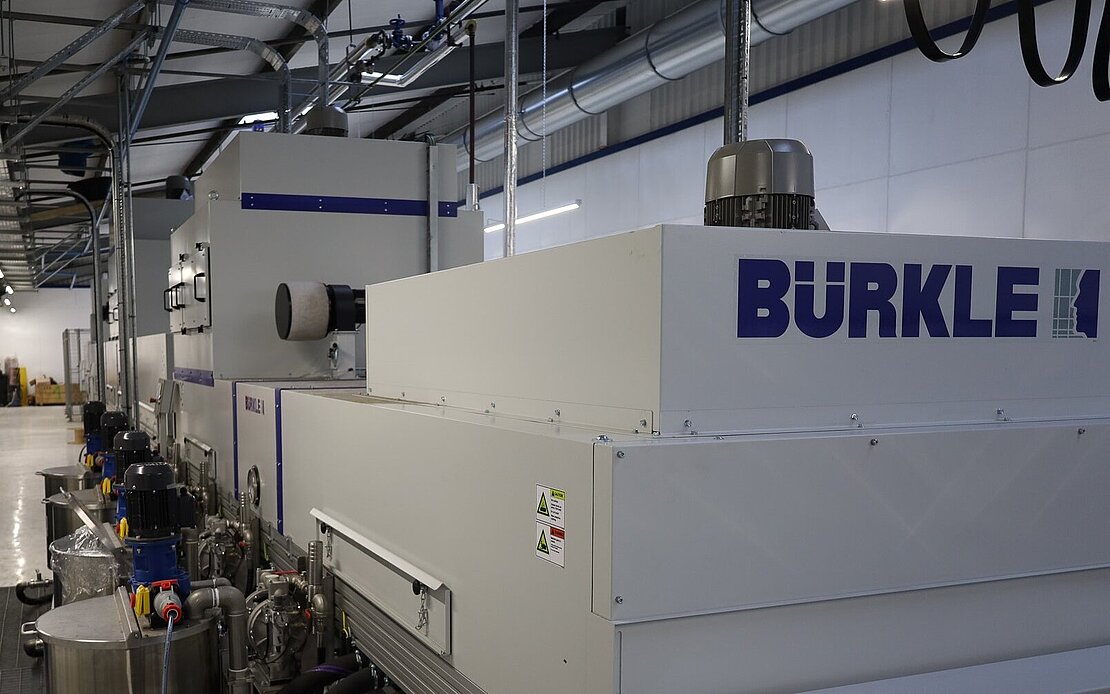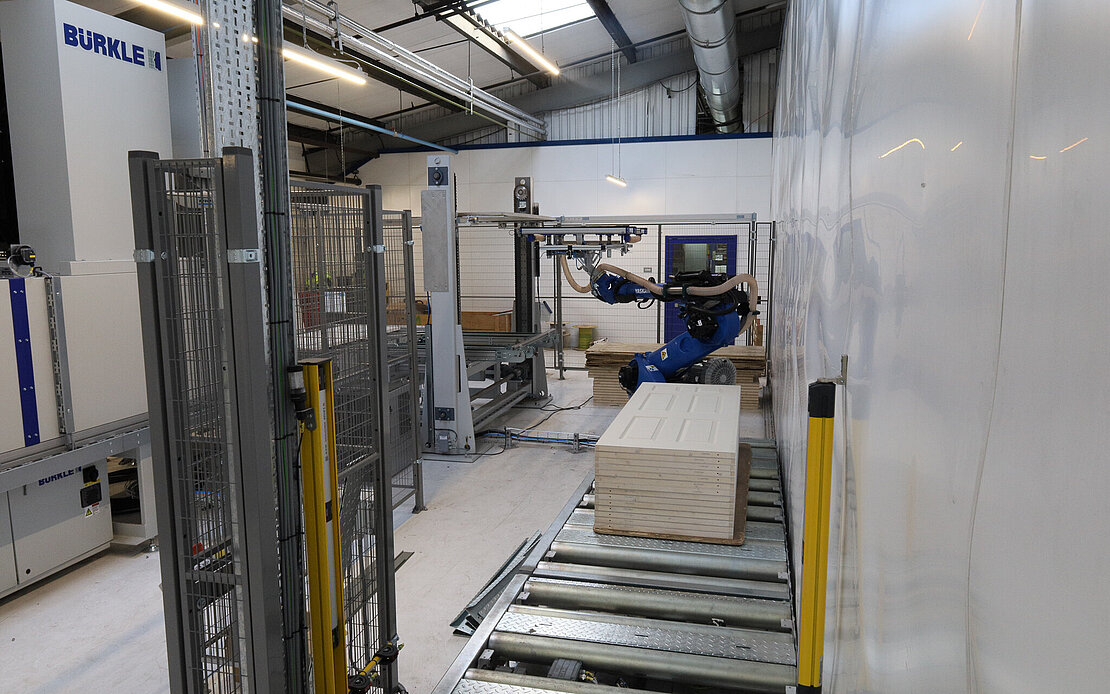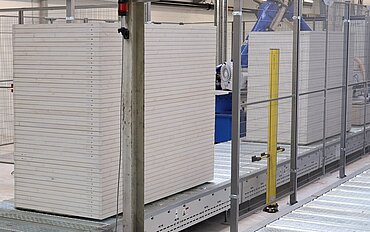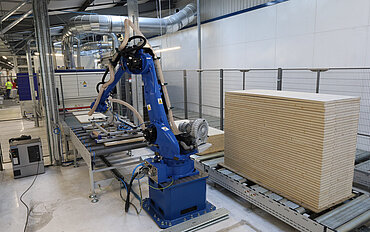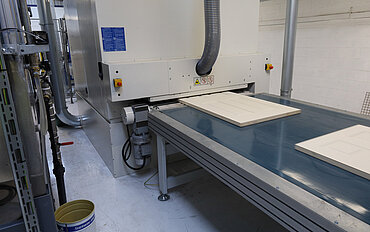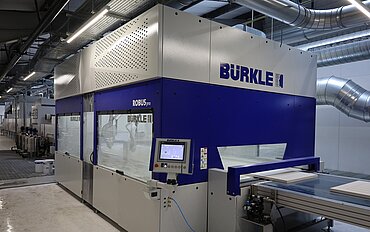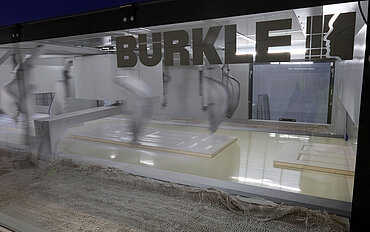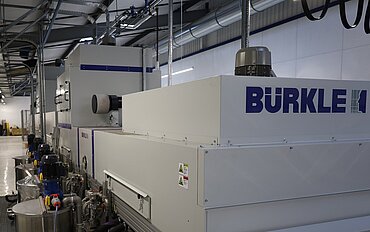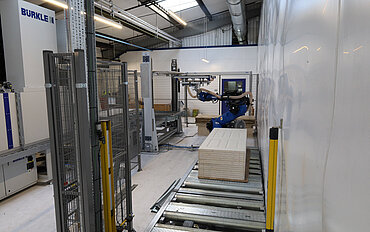The site is particularly geared towards supplying major customers from the construction industry and produces doors in large quantities and batches. These are honeycomb doors with various embossed surfaces, coated with water-based coatings. Before the new coating line was installed, the doors produced in Penrith had to be transferred to the sister plant in Sheffield for coating. In Penrith, only a roller coating line was previously available for the corresponding surface finishing, geared towards veneered doors, which are also part of the production range. “Our Penrith facility supplies our largest and most important customer and the investment in this coating line is part of a long-term strategic partnership”, says Key Account Director Andrew Douglas about the background to the project.
The first talks about a new line between JELD-WEN and Bürkle took place in May 2017. In the further course, different concepts were considered and planned, the final project of the fully automated spray coating line was finally decided in July 2020.
Option for output doubling, new robot control system
In the end, a coating line for 5000 door sides per week was implemented, with optional expansion reserves for 5000 doors per week. The project included the complete delivery of the line by Bürkle with all items of the automation, coating and drying systems. Only the sanding machine was provided by JELD-WEN. In the course of the project coordination and realisation, several detailed meetings between Bürkle and JELD-WEN took place on site in Penrith. This made it possible to discuss and plan in detail the implementation of the customer's requirements - in addition to the production capacities mentioned, this also concerned the shortest possible drying times and the best possible arrangement of the system in the existing space conditions. In this context, BÜRKLE's air conditioning was included in the system concept in order to be able to work as efficiently as possible, i.e. to effectively reduce overspray and lacquer consumption. Especially with the air conditioning in combination with the rotation unit of the spray coating machine, BÜRKLE offers one of the most powerful and at the same time most efficient spray coating systems on the market in the high-end area of spray coating.
Another practice-oriented solution is the use of robotic cells for loading and destacking. The limited space available at the Penrith plant ruled out common solutions and opened the way for the newly developed robotic control concept for integrating robots into the existing Bürkle control system.
The use of Yaskawa robots significantly reduces the space required compared to conventional gantry systems and still guarantees a high degree of automation. In addition to loading and destacking, the flexibility of the robots also enables the doors to be turned. This makes it possible to easily expand the capacity of the systems to five completely coated doors per minute. If required, a second leg can be integrated into the line; the "destacking robot" is then used as a flipper and transfer unit. Cycle rates and the positioning of the robots were simulated in advance at Bürkle. The new line is connected to the existing internal logistics at the site via two transverse transfer units.
Rotary spraying unit + new air conditioning system
The installed spray coating line has a fully automatic return line to prepare the doors for the second pass. It features numerous technical highlights, this concerns among others:
- The rotary spraying method of the spray coating machine for a high-quality surface finish with simultaneous high feed rate (13m/min) and lower lacquer consumption.
- The concept of air cleaning and humidification in the spray booth according to the Bürkle concept is unique in the wood industry. The line run - currently only single for the door sides - starts with the provision of the doors with pre-primed door skins from JELD-WEN production. These are loaded, pre-sanded, coated, dried in a 3-stage drying concept, flipped and stacked. The return line transports these stacks back to the system infeed and the second side is coated.
Bürkle tested the process parameters of the coating system beforehand at the Technology Centre in Freudenstadt together with the coating material supplier. Here, sample doors were coated and subsequently made available to JELD-WEN. The preliminary tests were also necessary because of the "very sporty" drying process, which, however, proved to be realistic and feasible thanks to the Bürkle drying systems. "The Penrith facility is a very efficient door manufacturing operation. It was important to us that the system supplier comprehensively fulfils the demanding JELD-WEN standards. Due to the high efficiency of the spray coating and drying technology as well as the confirmation of our standards, our decision finally fell on Bürkle", Douglas emphasises.
The installation of the system on site in Penrith was another challenge for all parties involved. In order to provide the customer with the best possible service and very fast support, the Bürkle service technician team from the UK took over on site.
In addition, the installation was complicated by the structural conditions of the production hall. In the end, a suitable opening had to be cut into the wall of the production hall in order to transport the Bürkle machines to the installation site. The detailed schedule, including the project kick-off at the customer's site, facilitated the close, constructive coordination between the two project managers from Bürkle and JELD-WEN. In the end, the installation was a complete success with two English service technicians from Bürkle and support from specialist experts from Germany for the respective detailed tasks during the work.
The total installation time from floor slab loadable to wet commissioning was about three months. For the start-up curve from the first unlacquered door to the first finished door, the parties involved needed only two weeks.
Reference in terms of engineering competence
As a conclusion for this ambitious door production project, it remains to be said that Bürkle was able to realise a spray coating line for the first time that uses the independently developed robotics control concept of the Freudenstadt-based machine and system manufacturer. This means that no robotics programming knowledge is required and the YASKAWA robots can be completely controlled via the Bürkle touch panels. The high-tech line for the door specialist JELD-WEN stands for Bürkle's engineering competence like no other project, according to the assessment from Freudenstadt.
The relatively high output of five door sides per minute should not compromise the coating result in any way, which is why the rotary system of the "ROBUSpro" as the heart of the system became the focus of the project and proved its worth. Thanks to the air conditioning unit in the spray coating machine, optimum coating results are achieved even at a production speed of 13 m/min and lacquer consumption is significantly reduced. The high quality of the coating with simultaneously optimised consumption values is a core element of the Bürkle spray coating machines. Not only the air conditioning unit, but also the lacquer recovery and the reduced overspray have a positive effect on the lacquer consumption.
Positive impressions are heard throughout from Great Britain: "You have to commend all the partners for making this project possible at such a difficult time," says Andrew Douglas about the project's progress.
High flexibility and Bürkle engineering enable this fully automatic spray coating line to produce up to five completely coated doors per minute with optimum coating results in the course of the planned extension option, truly an impressive line performance.
